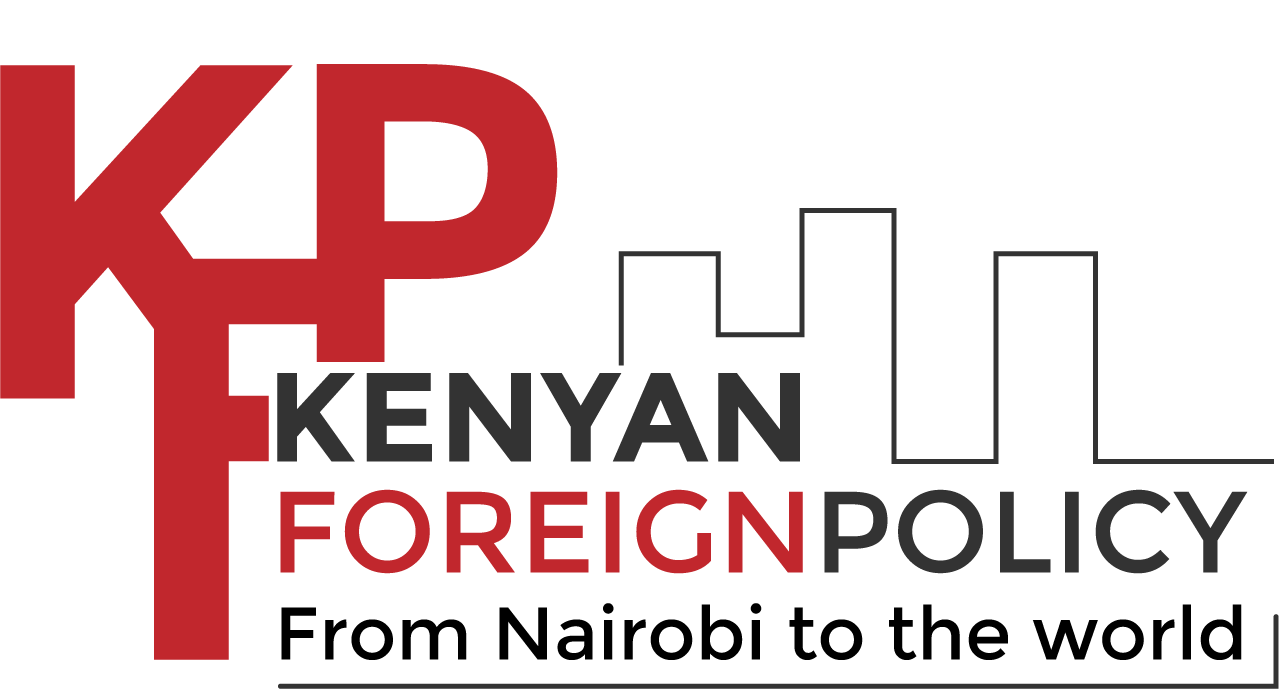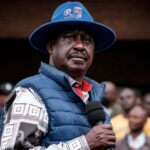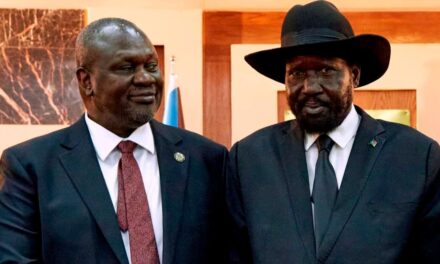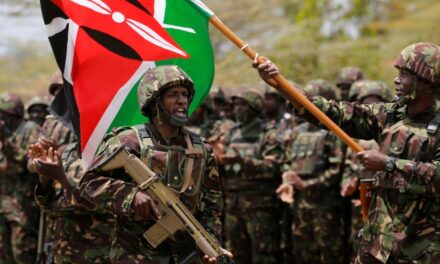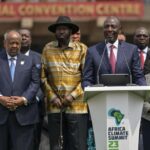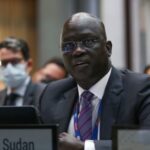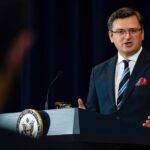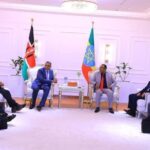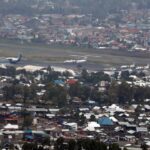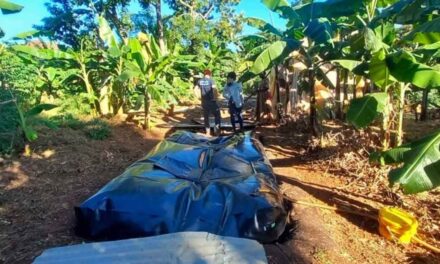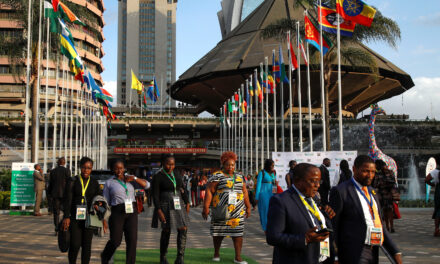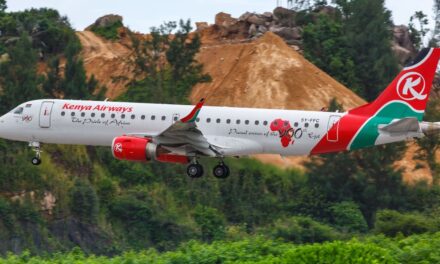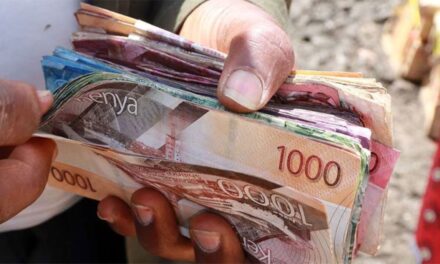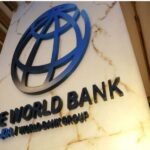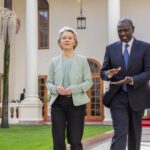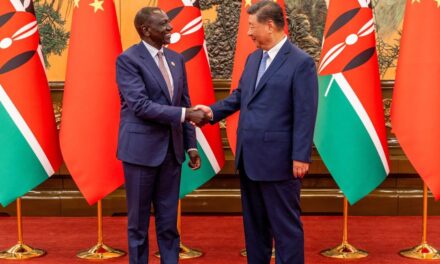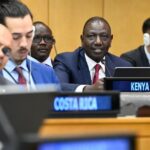

Africa Renews Push for Security Council Reform
By Mwangi Maina
| June 10, 2024

Kenyan Foreign Minister, Musalia Mudavadi, arrives in Algeria for AU C-10 meeting on UNSC reforms. Photo: OPCS
The 11th Ministerial meeting of the African Union Committee of Ten (C-10), responsible for spearheading UN Security Council reform and advocating for increased African representation, is currently underway in Algeria.
Foreign ministers from ten designated African countries, including Kenya and Uganda, are in attendance.
This meeting occurs as the continental body reaffirms its call for a permanent seat on the global security body to better address present geopolitical dynamics and emerging threats.
Foreign Minister Musalia Mudavadi is representing Kenya.
The recent leaders’ summit in Addis Ababa, which convened continental political leadership in February, called for “no fewer than two permanent seats with all the prerogatives and privileges of permanent membership, including the right to veto.”
The 55-countries bloc urged members to prioritise the issue of UN security Council reform in their foreign policy engagements with non-African partners.
This includes the urgent need to address “the historical injustice endured by the African continent” without delay.
The summit said it was time to do justice to Africa’s just and legitimate demand for Security Council reform, as reflected in the Ezulwini Consensus.
The Ezulwini Consensus adopted in 2005 by the continental body is a position on international relations and reform of the United Nations Security architecture.
It calls for a more representative and democratic Security Council, in which Africa, like all other world regions, is represented.
The consensus demands that Africa be given two permanent seats with all the rights and privileges of permanent membership, including the veto, as well as five non-permanent seats.
The global security body has only five permanent members: China, Russia, UK, US, and France, and all have veto powers.
The Committee of Ten, also known as C-10, was established in 2005 and consists of ten African countries.
Its objective is to bolster and endorse a unified African stance in the ongoing continental negotiations regarding the reform of the UN Security Council.
“The C-10 of the African Union Member States on the Reform of the UN Security Council must remain focused and vigilant in pursuing the mandate, including further canvassing support for the Common African Position as articulated in the Ezulwini Consensus and Sirte Declaration,” the draft report requested the committee of African countries tasked to champion African voice.
The continent constitutes more than a quarter of the organisation’s member states, the largest group, with 28 per cent of the UN membership.
The Asia group comes next with 27 per cent, while the Americas constitute 17 per cent.
The Western Europe region constitutes 15 per cent.
Over the years Africa has been the subject of at least 70 percent of the body’s work and hence the more reason that Africa ought to be appropriately represented in the permanent membership of the Council to effectively make its own case as there is a rapidly growing recognition that peace and security, economic and social development, as well as human rights, are part and parcel of one global agenda.
There has been a growing trend in the Security Council to defer Africa’s matters to the various regional bodies, such as the African Union, SADC, ECOWAS, IGAD when a threat to international peace and security emerges.
Most African conflicts only get a light touch at the council despite the significant effort put by the continent towards international peace.
Africa continues to have more peacekeeping missions than any other continent, and as conflict-stricken countries increasingly look outside the United Nations for support, experts say reforms are necessary to improve peacebuilding.
Roughly half of the UN peacekeeping missions operating around the world are in Africa according to the Council on Foreign Relations.
“Since 1960, there have been more than thirty UN peacekeeping missions across Africa, the most of any region,” wrote the American think tank last year in their piece, “the role of peacekeeping in Africa.”
Africa’s call to reform the UNSC is highlighted in the Secretary-General’s report of 10 September titled “Our Common Agenda,” which calls for greater representation of Africa in the UNSC.
Pundits argue that despite the Ezulwini Consensus, the African group has been unable, to date, to determine the criteria for selecting the two African candidates.
No consensus was reached at the Addis Ababa summit regarding which of its 55 members would qualify for a permanent seat on the UN Security Council, despite efforts toward serious reform.
Africa last year was granted full member status at the G20, a powerful global group representing around 85 per cent of global GDP and 75 per cent of global trade, as well as two-thirds of the world’s population, prior to the AU joining.
Kenya President William Ruto said the move will increase Africa’s voice, visibility and influence.
Your support empowers us to deliver quality global journalism. Whether big or small, every contribution is valuable to our mission and readers.
